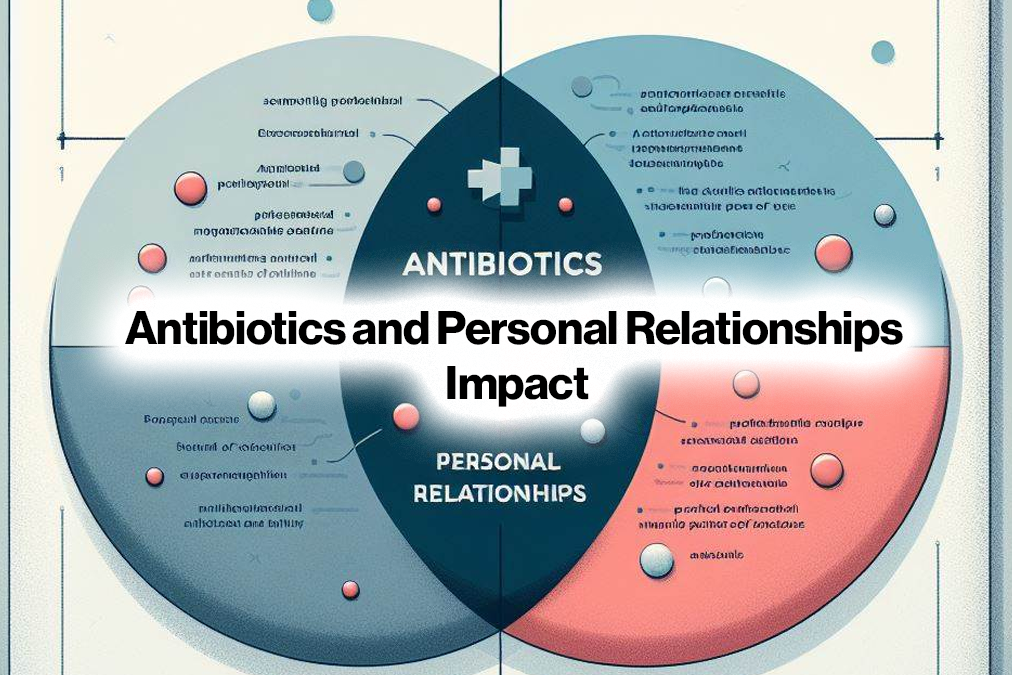In the intricate web of human interactions, personal relationships play a paramount role in shaping our emotional and mental well-being. However, one intriguing facet that often gets overlooked is the potential impact of antibiotics on these relationships. While antibiotics are predominantly associated with their role in combating infections, their influence on personal relationships is an emerging topic that warrants comprehensive exploration.
The Antibiotic Revolution: A Brief Overview
The journey of antibiotics dates back to the discovery of penicillin by Alexander Fleming in 1928. This groundbreaking revelation marked the beginning of a new era in medical science, enabling the effective treatment of bacterial infections that were once life-threatening. Over the years, a plethora of antibiotics has been developed, each tailored to target specific strains of bacteria with remarkable precision.
The Microbiome Connection: Unraveling the Complexities
Central to the discussion of antibiotics’ impact on personal relationships is the intricate world of the human microbiome. Our bodies are host to trillions of microorganisms, collectively known as the microbiota, which inhabit various niches, including the skin, mouth, gut, and more. These microorganisms not only play a vital role in maintaining our overall health but also influence our mood, behavior, and even social interactions.
When antibiotics are introduced into the system, their primary objective is to eliminate harmful bacteria causing infections. However, this action is not without consequences. Antibiotics, while effective against pathogenic bacteria, can also disrupt the delicate balance of the microbiome. The eradication of beneficial bacteria alongside harmful ones can lead to an imbalance in the gut flora, potentially triggering gastrointestinal issues, inflammation, and even affecting one’s emotional well-being.
Antibiotics and Emotional Resonance
Personal relationships are a cornerstone of human existence, encompassing friendships, family bonds, romantic partnerships, and more. The influence of antibiotics on these relationships may not be immediately apparent, but it can subtly permeate through emotional resonance.
Consider a scenario where an individual is prescribed a prolonged course of antibiotics to treat a persistent infection. The physical discomfort and potential side effects of antibiotics can manifest as irritability, fatigue, and even mood swings. These factors, albeit unintentionally, can impact the individual’s interactions within their personal sphere. Friends and family members may perceive changes in behavior and emotions, leading to misunderstandings and strained relationships.
Communication Breakdown and Misinterpretations
Effective communication is the bedrock of healthy relationships. However, when antibiotics come into play, communication breakdowns can occur, often due to the physical and emotional toll they take on individuals. Antibiotics can lead to disruptions in sleep patterns, decreased energy levels, and cognitive fogginess. As a result, individuals may find it challenging to express themselves clearly, leading to misinterpretations and unnecessary conflicts.
Nurturing Relationships During Antibiotic Use
While antibiotics may pose challenges to personal relationships, there are strategies to navigate these hurdles and maintain healthy connections:
1. Open Dialogue:
Encourage open conversations with loved ones about the potential impact of antibiotics on your mood and energy levels. This proactive approach can help prevent misunderstandings and foster empathy.
2. Self-Care:
Prioritize self-care during antibiotic use. Get adequate rest, stay hydrated, and engage in activities that bring you joy. Taking care of yourself physically can positively influence your emotional state.
3. Patience and Understanding:
For friends and family members, exercising patience and understanding is crucial. Recognize that the individual undergoing antibiotic treatment may be facing challenges beyond their control.
4. Seeking Professional Guidance:
If you notice persistent emotional changes during antibiotic use, consider seeking advice from a medical professional or counselor. They can provide guidance on managing emotions and maintaining healthy relationships.
The Road Ahead
In a world where personal connections hold immense significance, it is imperative to recognize the potential impact of antibiotics on these relationships. While antibiotics serve as a vital tool in combating infections, they can inadvertently create ripples that extend to our emotional landscape. By fostering open communication, practicing self-care, and nurturing understanding, individuals can navigate the complexities of antibiotics and preserve the fabric of their personal relationships.

Leave a Reply